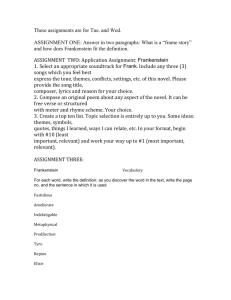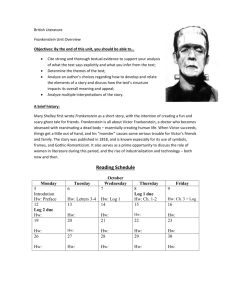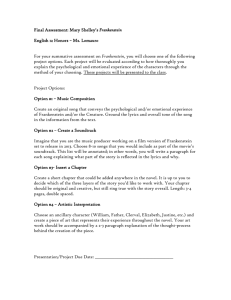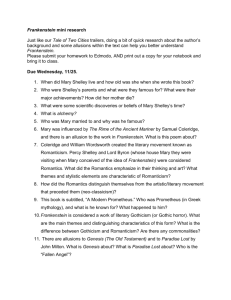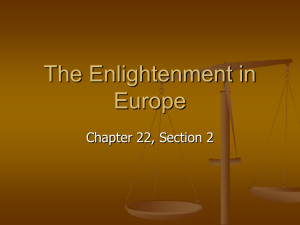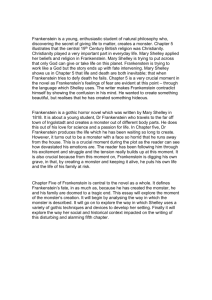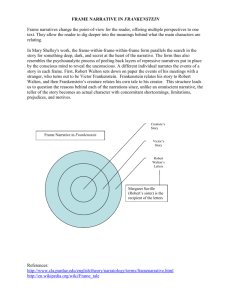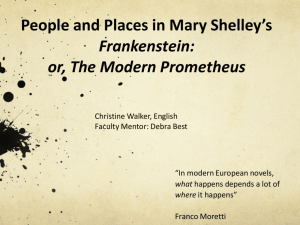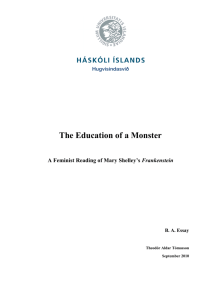Sample News Release - American Library Association
advertisement
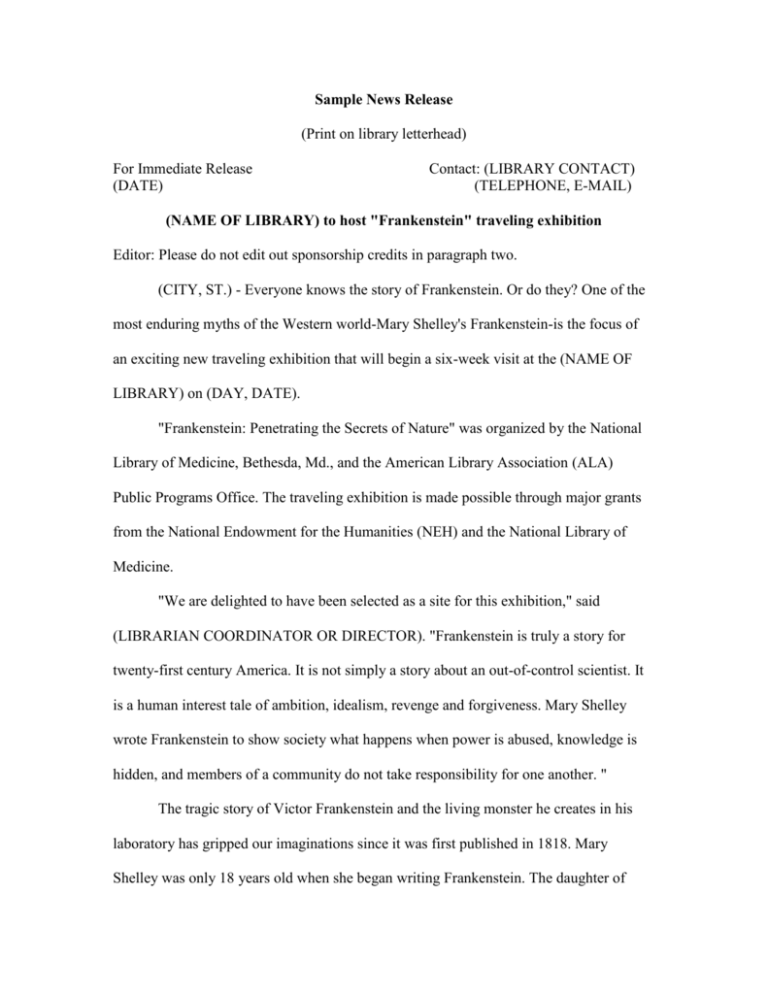
Sample News Release (Print on library letterhead) For Immediate Release (DATE) Contact: (LIBRARY CONTACT) (TELEPHONE, E-MAIL) (NAME OF LIBRARY) to host "Frankenstein" traveling exhibition Editor: Please do not edit out sponsorship credits in paragraph two. (CITY, ST.) - Everyone knows the story of Frankenstein. Or do they? One of the most enduring myths of the Western world-Mary Shelley's Frankenstein-is the focus of an exciting new traveling exhibition that will begin a six-week visit at the (NAME OF LIBRARY) on (DAY, DATE). "Frankenstein: Penetrating the Secrets of Nature" was organized by the National Library of Medicine, Bethesda, Md., and the American Library Association (ALA) Public Programs Office. The traveling exhibition is made possible through major grants from the National Endowment for the Humanities (NEH) and the National Library of Medicine. "We are delighted to have been selected as a site for this exhibition," said (LIBRARIAN COORDINATOR OR DIRECTOR). "Frankenstein is truly a story for twenty-first century America. It is not simply a story about an out-of-control scientist. It is a human interest tale of ambition, idealism, revenge and forgiveness. Mary Shelley wrote Frankenstein to show society what happens when power is abused, knowledge is hidden, and members of a community do not take responsibility for one another. " The tragic story of Victor Frankenstein and the living monster he creates in his laboratory has gripped our imaginations since it was first published in 1818. Mary Shelley was only 18 years old when she began writing Frankenstein. The daughter of social reformists, she believed that knowledge was a defense against the abuse of power by governments and individuals; armed with knowledge, humans could make responsible choices. Shelley drew upon her wide reading in literature, history, the natural sciences, and politics in shaping the story of a researcher whose personal ambition to reveal "the secrets of nature," and lack of responsibility for his actions leads to his own death and the destruction of his immediate community. Mary Shelley's monster was a sensitive, articulate, and lonely creature who was denied companionship and rejected by humans. He lashes out in revenge only when he is betrayed and abandoned by his maker. But playwrights, filmmakers, and the media have in the past two centuries transformed Shelley's sympathetic creature into a speechless being who kills without remorse. Over the decades, the monster has also been a symbol for fears about cutting-edge scientific techniques and research which often challenge the public's understanding of what is "natural" and what it means to be human. Frankenstein is frequently mentioned in media accounts of developments such as cloning, gene manipulation, and organ transplants. "Frankenstein: Penetrating the Secrets of Nature" is based on a major exhibition of original materials mounted by the National Library of Medicine in 1997-1998. The (NAME) library is sponsoring free programs and other events for the public in connection with the exhibition. Contact (TELEPHONE NUMBER, E-MAIL) or visit (WEB SITE ADDRESS) for more information. ###
